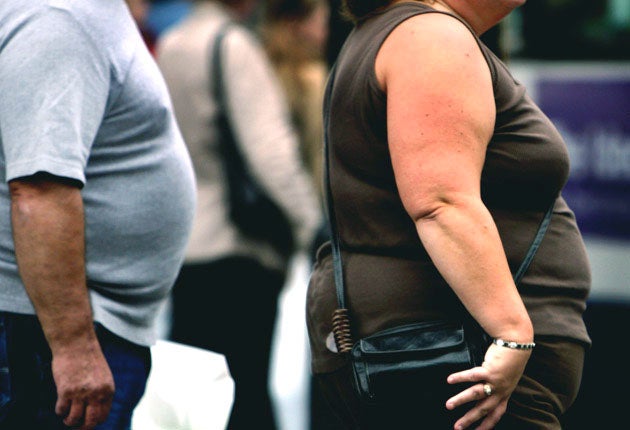
Your support helps us to tell the story
From reproductive rights to climate change to Big Tech, The Independent is on the ground when the story is developing. Whether it's investigating the financials of Elon Musk's pro-Trump PAC or producing our latest documentary, 'The A Word', which shines a light on the American women fighting for reproductive rights, we know how important it is to parse out the facts from the messaging.
At such a critical moment in US history, we need reporters on the ground. Your donation allows us to keep sending journalists to speak to both sides of the story.
The Independent is trusted by Americans across the entire political spectrum. And unlike many other quality news outlets, we choose not to lock Americans out of our reporting and analysis with paywalls. We believe quality journalism should be available to everyone, paid for by those who can afford it.
Your support makes all the difference.The obesity crisis is being driven by a food industry bent on maximising profits – but governments are failing to intervene to protect the health of their populations, leading scientists say today.
In the UK, the fattest nation in Europe, the number of obese adults is now forecast to rise 73 per cent over the next two decades, from 15 million to 26 million, resulting in more than a million extra cases of diabetes, heart disease and cancer.
Yet, despite the increased burden on families, the economy and the NHS, ministers have failed to implement preventive policies, because of fears about being branded the "nanny state".
Research papers published in The Lancet ahead of next month's UN meeting on non-communicable diseases, which is expected to single out obesity as the world's greatest challenge, say the drivers of the pandemic have been known for 40 years but governments have turned a blind eye.
No country was successfully tackling the threat as leaders feared the wrath of electors if they slapped extra taxes on unhealthy foods or restricted car use. But the consequences of doing nothing would be worse, they said.
Professor Steven Gortmaker of the Harvard School of Public Health said an assessment of 20 proven interventions for curbing obesity showed that eight would save costs as well as improve health, ranging from a tax on unhealthy food and drink, to restrictions on marketing to children.
Join our commenting forum
Join thought-provoking conversations, follow other Independent readers and see their replies
Comments